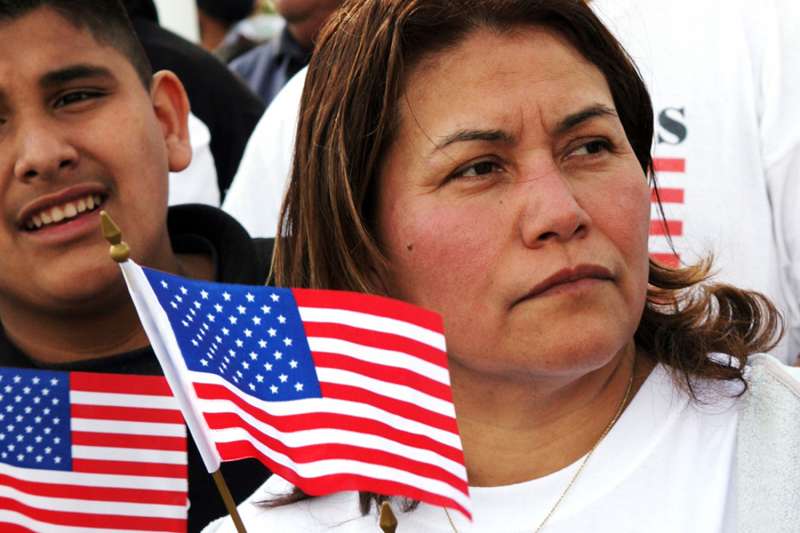A plan floated by President Donald Trump to end “birthright citizenship” through an executive order is likely unconstitutional, according to a law professor at The Catholic University of America.
"This idea that you can pass this kind of a fundamental change to the Constitution through the signing of a pen...does not comport with the Constitution," CUA law professor Stacy Brustin told CNA.
In a recent interview with news site Axios, Trump said that the U.S. is “the only country in the world where a person comes in and has a baby, and the baby is essentially a citizen of the United States,” according to an Oct. 30 Axios report.
"It's ridiculous. It's ridiculous. And it has to end," Trump added.
The president reportedly said that he would soon end “birthright citizenship” through an executive order.
The Fourteenth Amendment to the U.S. Constitution is generally understood to establish that citizenship is conferred upon all children born in the United States, regardless of the legal status or citizenship of their parents.
Brustin told CNA that the president is not empowered to change the Constitution through an executive order.
“There are two very clear and established ways of changing the Constitution that are actually articulated in the Constitution,” she explained.
“Either two-thirds of both houses of Congress have to pass a proposed amendment, and then send that amendment to the states for ratification by three-quarters of the states,” or else a Constitutional convention must be held. Typically, the Congressional route has been used for the passage of previous amendments.
If Trump were to pursue an amendment to change the practice of birthright citizenship, Brustin said, it would likely be “extremely difficult,” pointing to the failed attempts at passing other amendments, such as the unratified Equal Rights Amendment.
The practice of jus soli, or “birthright” citizenship is fairly common throughout North and South America, while no European country grants immediate citizenship to all those born on its soil. In most European countries, the conferral of citizenship depends upon the legal status of a child’s parents, regardless of where the child happens to be born. Some countries permit citizenship to be granted after a child has resided in the country for a set number of years, but this practice varies widely.
The Fourteenth Amendment was passed shortly after the Civil War, to ensure that former slaves could not be denied citizenship. The amendment says that “All persons born or naturalized in the United States and subject to the jurisdiction thereof, are citizens of the United States and of the State wherein they reside.
Trump's remarks appeared to endorse a minority perspective on the amendment centered around the phrase “subject to the jurisdiction thereof.” While some argue that this phrase is meant to exclude people who are in the country illegally, Brustin disagreed.
"’Subject to the jurisdiction’ has been interpreted by our court as meaning 'present in the United States,’” explained Brustin, with the sole exception being the children born to diplomats.
“But otherwise, those who are physically present are subject to the laws of the United States. That's generally that's what that means,” she said.
In addition to her work in the classroom, Bustin is the director of CUA’s Immigrant and Refugee Advocacy Clinic. Brustin said that the president’s words have created fear among the immigrant community she works with at the clinic.
“Whether the law is changed or not, there will be fear among those in the immigrant community that children born in the United States to immigrant parents will not be able to become citizens,” she said.

